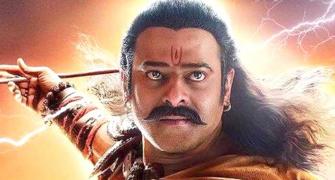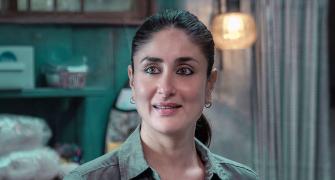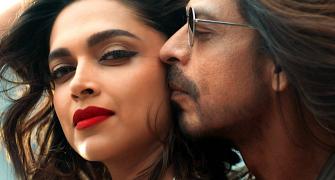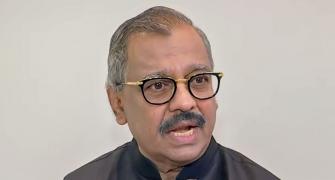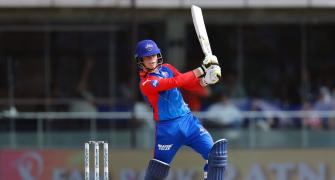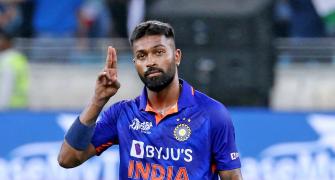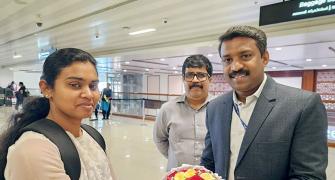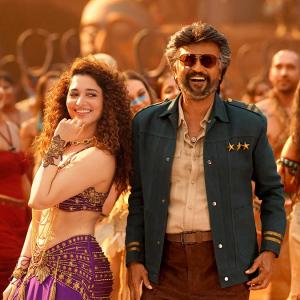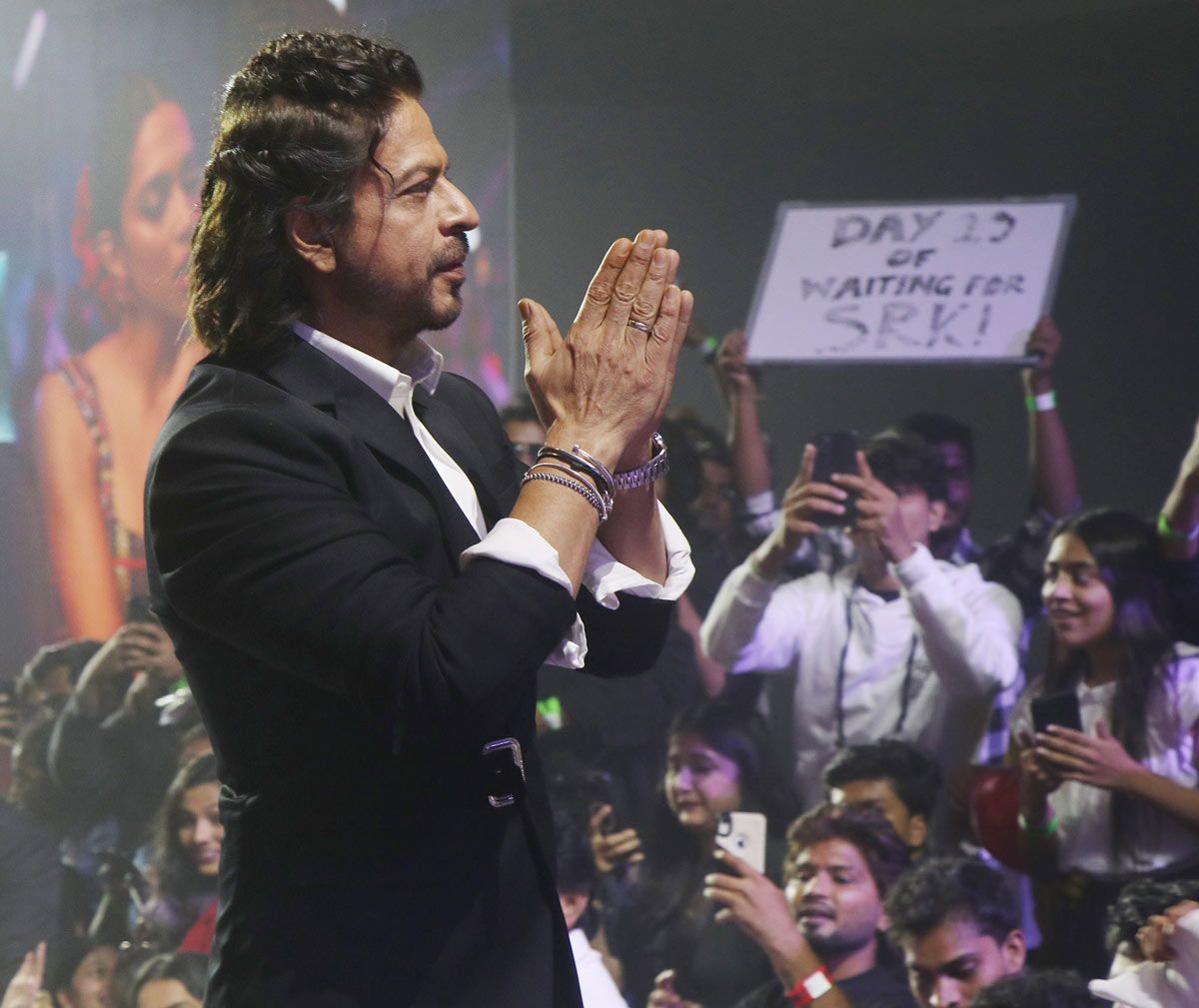It was a year of so many contradictions and contrasts that it became dangerous to talk about movies, people lost their heads discussing Friday releases, psychiatrists began dabbling in film criticism, and film critics turned into psychiatrists, says Sreehari Nair.
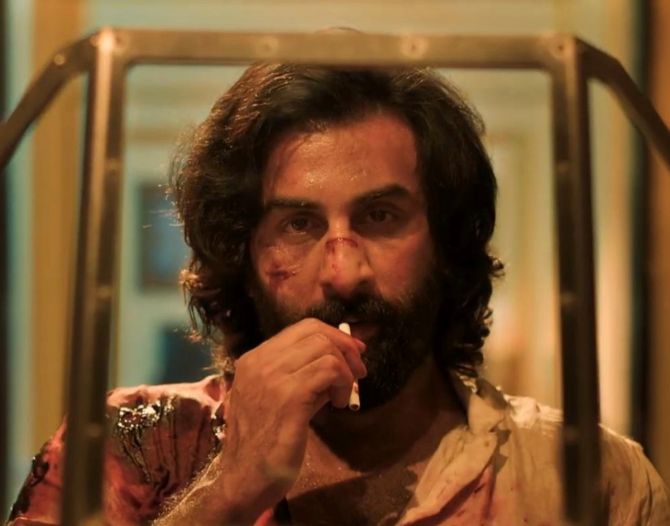
It was a year in which movie deaths affected me and a year in which I was left unaffected by too much liveliness.
It was a year of films about homosexuality that approached the subject with a ten-foot pole and a year where you saw at least one wonderful representation of love between heterosexual men.
It was a year of assembly-line productions being given a free pass and a year when smaller films were subjected to exacting critical standards.
It was a year of so many contradictions and contrasts that it became dangerous to talk about movies, people lost their heads discussing Friday releases, psychiatrists began dabbling in film criticism, and film critics turned into psychiatrists.
This, then, is not an attempt to recount the films I saw in 2023, but an attempt to savour their aftertastes.
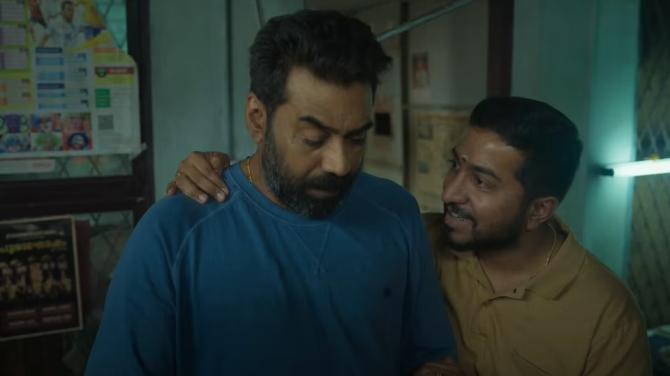
Thankam
The world of this Saheed Arafath movie lacks the subtle interconnections that make a Dileesh Pothan picture so rich and flavourful.
This explains why Thankam's climactic reveal feels kind of insular, feels like someone screaming into a plastic bag.
Also, that humming howl of a background score, which shows up at crucial points, becomes an endorsement for unearned agony.
What keeps you invested is Biju Menon's performance as the self-doubting Muthu. Menon plays the character with a conviction that transcends the fundamental problems in the narrative.
The great actor's rendering of Muthu's almost delusional belief in his best friend (played by Vineeth Sreenivasan) stays with you.
Thanks to Biju Menon, you learn more about the friend who survives than the one who makes his escape.
If you are prone to overanalysing themes, you might even read Thankam as screenwriter Syam Pushkaran's statement against the collective paranoia that followed Sushant Singh Rajput's suicide; and while a misreading, it does provide a fascinating way into the story.
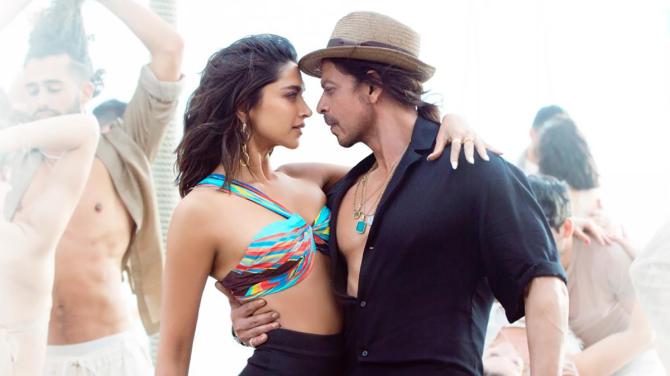
Pathaan
Isn't it a tragedy of our times that Shah Rukh Khan, our least self-serious superstar, all because of the failure of an anemic ambition called Fan, was made to abandon his search for a higher form of artistry and play ball with the rigged star system? Hence Pathaan, hence Jawan, hence all those self-commemorating vehicles that are about to make a beeline for your established tastes.
Also, I don't get this new tough-guy baritone of his, do you? Doesn't it strike you as a put-on? The stutter, now that I look back at it with fondness, was a sign of thought-in-motion, and it seemed to flow out of him. This present tone of machismo seems thought up by brand managers.
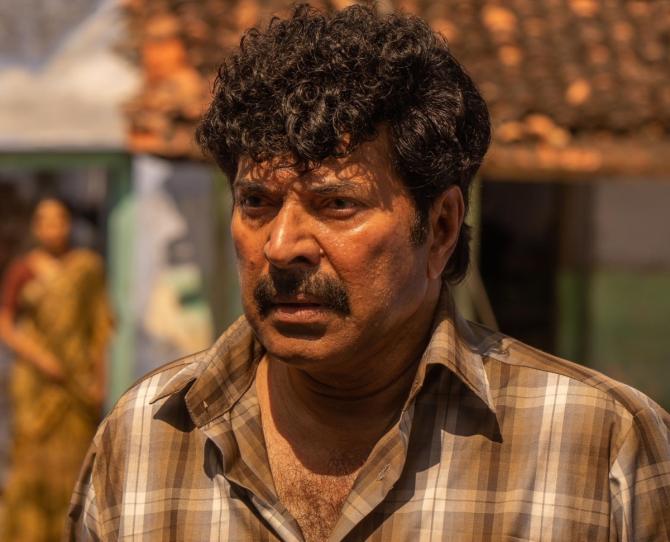
Nanpakal Nerathu Mayakkam
Lijo Jose Pellissery blends childhood memories of travelling with a theatre troupe, his personal takes on Mammootty the actor, old clippings of film magazine gossip, the essays he had written as a young cinephile, those fading recollections of what Sunday morning felt like, heard rhetoric as well as overhead poetry, and he then lets a supernatural story filter through this harlequin weave.
Seductions whose coordinates you cannot easily locate may be the best kind, and this is one such seduction.
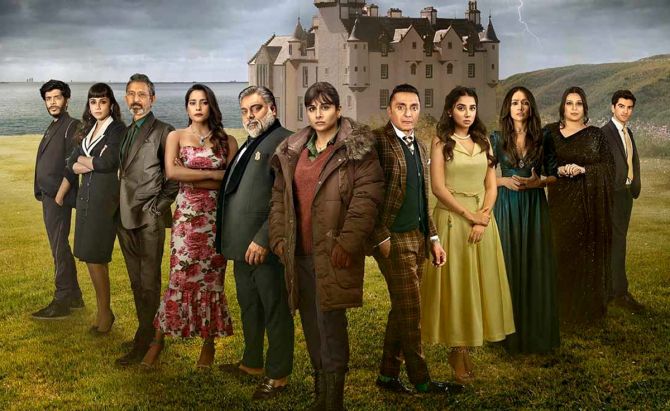
Neeyat
A wonderfully even B-movie.
Despite the flimsy writing and characterisations, you applaud the spirit with which each actor approaches his or her role.
From Amrita Puri as a tender-hearted bimbo who shuffles rather than walks to Ram Kapoor as her boss, a Mallya-like oversized business tycoon, who enunciates his dinner-table speech so that it sounds like a boardroom clincher -- the performances are so consistently exaggerated that they become joyful.
Rahul Bose as the business tycoon's brother-in-law finally gets a part that accommodates all his excesses as an actor: he is a homosexual playboy whose sincerity is always being held up for scrutiny -- it's a gloriously self-effacing turn!
Both the castle where the story unfolds and the gloomy weather outside look computer-generated. And Vidya Balan's highly entertaining show of nervousness keeps reminding us that though this is a world of campy, gleaming objects, the real lacquer is on the faces.
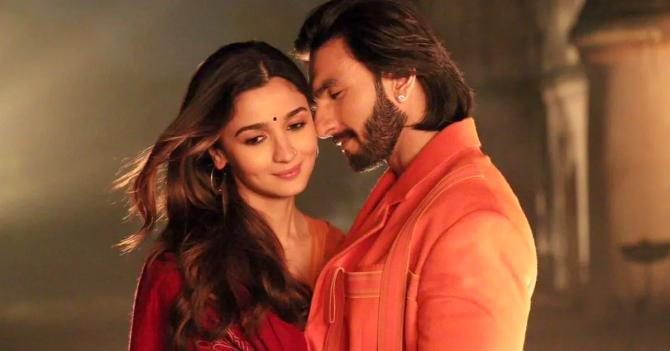
Rocky Aur Rani Kii Prem Kahaani
Here's where it went downhill. There was no reason, absolutely none, for Rani Chatterjee to fall in love with Rocky Randhawa, except that she was played by Alia Bhatt and he by Ranveer Singh (and this, coming from a director who had, in his last full-length feature, tried to inductively convey to us why a woman may not be attracted to a perfectly attractive man).
I thought there was not an ounce of feeling to be found anywhere in Rocky Aur Rani.... Ties into the fact that there was so much body show, and yet it was one of the most sexless films I have seen to date.
Autobiographical, sure, but in the sense that it seemed made by a guy who gets off on brand names and proudly owns up to it. And if the supposed subversions and political statements in the film are all it takes to gladden our hearts, then God help this country.
Even if I were to overlook the Cadbury ad-level cinematography, even if I were to overlook how terribly Dharmendra and Shabana Azmi were used, I simply fail to understand how people who otherwise profess to lofty tastes could be okay with the way Alia's Bengali family was written (it's so unimaginatively conceived that you end up caring for elitism).
I am pretty sure that Karan Johar, who is an extremely intelligent person, could not have been anything less than shocked by the wholesale praise that this one received.
There's no logical explanation for the response, but you can surmise that because Johar is so generous about other film-makers and about his own shortcomings, he probably corrupts by goodwill.
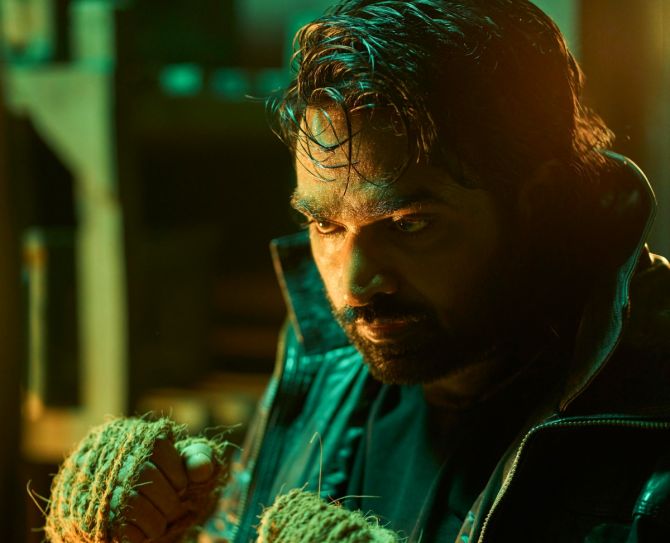
Jawan
This is a movie so high-strung in its performances and its editing that the one defiantly out-of-step character in it comes off as a big relief.
I have always thought of Vijay Sethupathi as somebody who acts out of a dead-end, but here, he plays a villain so confused and emasculated that among those smack-dab, overly confident souls, Sethupathi feels kind of tolerable, even cute.
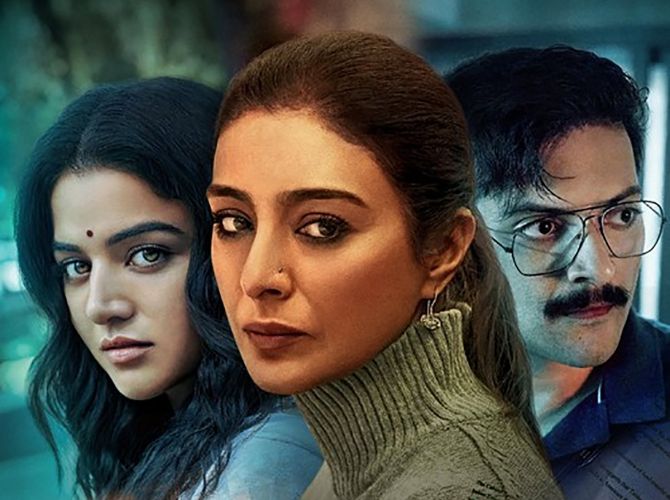
Khufiya
For a story that could have qualified as 'entertaining trash,' Khufiya is too precious about itself. And the preciosity seeps into every aspect of the film, not least the performances.
Wamiqa Gabbi is pleasing to observe, just as a butterfly under a glass often is. But I have serious misgivings about her range as an actor (when pushed to the wall, she becomes too squeamish).
Since none of the characters develops into anything substantial, Tabu's no-nonsense turn as the R&AW operative is as welcoming as that rare snatch of everyday conversation you might hear amid all the high-art code language on display here. And yet, I had the feeling that our most elusive actress may be paying for explaining her 'process' to interviewers who just cannot grasp that an actor's unconscious is one of her most sacred tools.
It's time, perhaps, that Tabu realises an important fact: Those interviewers may mean well, but they empty your well.
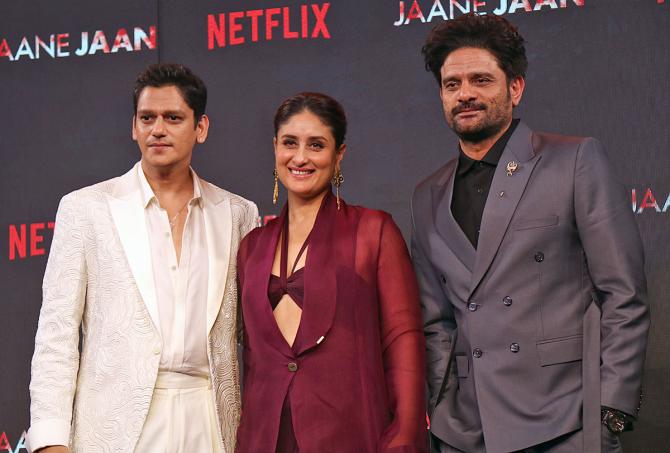
Jaane Jaan
If this is a straight reworking of The Devotion of Suspect X (and I am told it is) then Jeethu Joseph must be credited with making a first-rate adaptation of a third-rate piece of schlock.
Even setting aside Sujoy Ghosh's grisly idea of enduring love, Jaideep Ahlawat's Math Teacher has to be one of the most laughable evocations of 'genius' in the history of cinema, what with his riddles and limericks scooped out of old editions of Champak. You wouldn't guess at Ahlawat's humanity or his vitality from watching Jaane Jaan.
Ghosh works with his actors in an airless and stifling manner, but it bothers you only until you get to the god-awful climax.
I swear I wept real tears for that poor homeless guy who sacrifices his life in order to justify the Champak-reader's love for his Momos-serving lady.
This one gets my vote for the most hateful movie of the year.
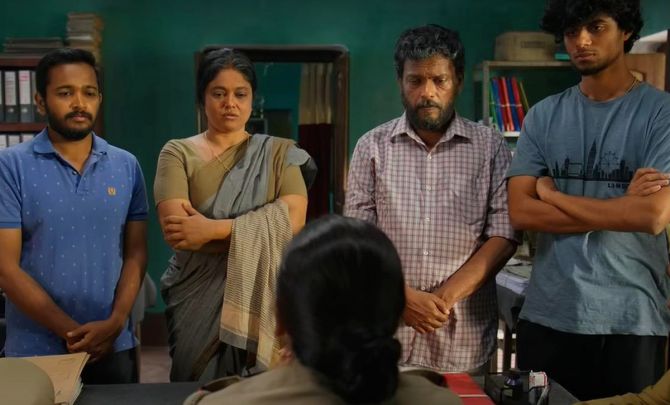
Falimy
The last 40 minutes of Falimy do a thorough job of spoiling one of the funniest films in recent memory.
The story is about a Trivandrum-based family of five that decides to go on a trip to Kashi, but Kashi is where the movie falters.
Where it soars is in its portrayal of familial disjunctions expressed sometimes through gnashed teeth but often with a yielding look.
The director, Nithish Sahadev, has a real gift for visual humour, and he heroically steers clear of punchlines.
Here's a film-maker who understands that a passionately probing face, when viewed from another vantage, has every chance of looking like the face of an oddball.
Here's a film-maker who can create music out of the lumping together of life's banalities.
Here's a film-maker who can help us feel a fast-receding railway platform and make us laugh at that.
Jagadish is in sublime form as the father who steps out for a smoke break every time he is called upon to discharge his responsibilities.
The performance is a masterpiece of shaggy-dog acting, and the evasive father is so clumsy that even as he tries to silently exit the scene, the matchbox that dribbles off his lap gives him away.
Manju Pillai is the mother, and her gray, weather-beaten features are the stuff of 1990s-style domestic warfare.
There's a 15-minute stretch in an express train, complete with getting down for tea and snacks, digestive disorders, and casual acts of self-promotion, and this stretch is a classic in its own right.
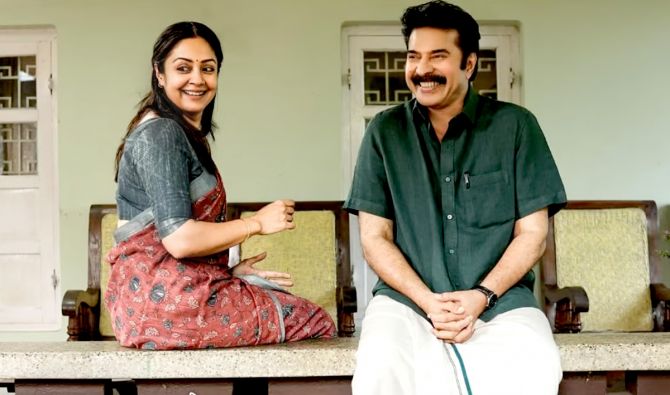
Kaathal
You will appreciate Kaathal more if you do not automatically applaud Mammootty's courage in playing a homosexual and instead examine how the star lets his own discomfort and scepticism about playing a homosexual become a part of the character.
It's interesting to note that Kaathal's protagonist, Mathew Devassy, is always shirking the label of a gay man (perhaps because he thinks he is so much more than his sexuality), running away from mild-mannered queer activists, and in the way he behaves around his wife even suggesting that he may be an active bisexual -- and though such observations might destroy the Liberal Project at hand, it is aesthetically more challenging and a far more humane way of thinking about the movie.
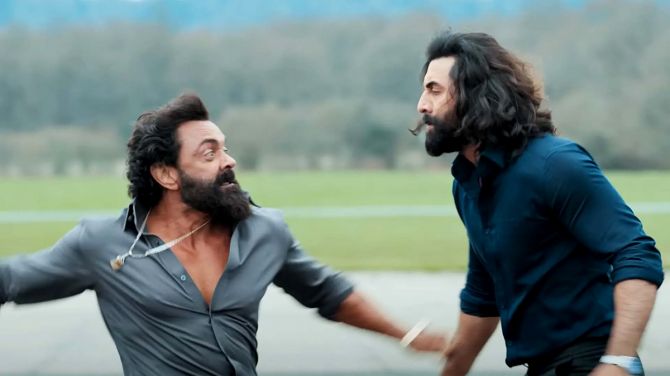
Animal
It is no condemnation of Sandeep Vanga Reddy to call him a 'talented adolescent.'
Orson Welles was seen as a talented adolescent before he proved himself to be among the 20th century's greatest artists, and Ram Gopal Varma (Sandeep Vanga Reddy's current ideological benefactor) was Hindi Cinema's leading enfant terrible before he proved himself to be a talented adolescent.
If I have a gripe with Vanga Reddy, it's that he, despite the deck being stacked in his favour, seems content in keeping to his category.
He is content in throwing at us gobbets, among them his protagonist's puffy look and his undergarment woes, and presenting them as illustrations of some outdated Hobbesian theory about man and his jungle instincts.
He is content in quoting lines from classics out of context -- such as The Godfather Part II's 'If history has taught us anything, it's that you can kill anyone' -- and thereby draining them of their emotional power.
For somebody who takes quite an ironic view of movie violence (he's clearly not as simple-minded as Rajamouli or an empty muckraker like Vetrimaaran), Vanga Reddy also believes that styling Ranbir Kapoor as some sort of a Christ Figure and having him dish out bloody justice to a rousing war cry is a surefire way of getting the heterosexual Indian man of 2023 to fall in love with an actor whose fan-base up until now was majorly female.
I get it that SVR wishes to walk between good taste and spontaneously felt pleasure, but in Animal, he gets so lost in anticipating his followers' applause and out-booing his critics that he stops observing his characters and stops hearing what they have to tell him. And this double-consciousness of his makes the film logy and exhausting, and it has the effect of muddling his 'not insubstantial' craft.
And so, hardly anybody who steps out of Animal would remember that inspired shot of Ranbir grooving to a psychedelic version of Dil Hai Chhota Sa, his expert manipulation of a gang of bushy beefcakes, or the toothy smile that he flashes when teased about Tripti Dimri.
In these passing instances, Vanga Reddy is a shrewd observer of behavioral asides, is curiously romantic, and when I thought about these instances later, it came to me once again that an artist of some perception is being held captive by a talented yet tiresome adolescent.
Feature Presentation: Rajesh Alva/Rediff.com

